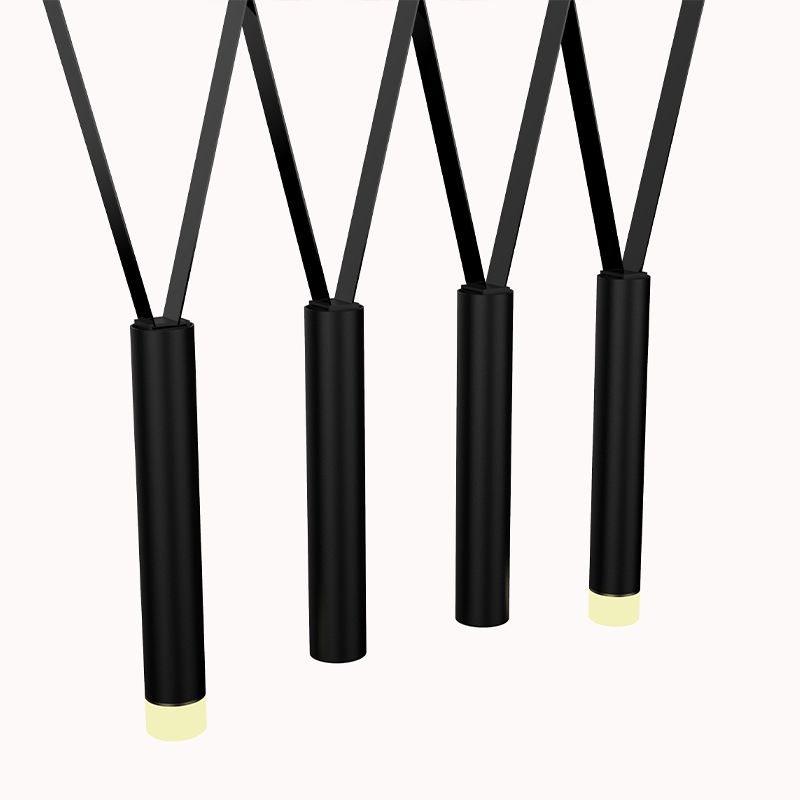How Does a Belt Light Enhance Safety and Efficiency?
2025-08-19
In modern industries, workplaces, and even outdoor recreational activities, visibility often determines the difference between safety and risk. A belt light is a compact, wearable lighting solution designed to be mounted or integrated directly onto a belt. Unlike handheld flashlights or bulky headlamps, a belt light provides hands-free illumination exactly where it is needed, enabling workers, adventurers, and safety personnel to operate effectively in low-light environments.
The demand for high-performance portable lighting has surged in recent years. Professionals across construction, mining, emergency response, and security services increasingly rely on belt lights for their ability to deliver strong, directed beams without occupying the hands. At the same time, outdoor enthusiasts—from campers to hikers—find them essential for night navigation, tool handling, or emergency signaling.
The question then arises: how does a belt light actually improve both safety and efficiency in real-world applications? This article explores the functionality, advantages, and specifications of belt lights, along with expert insights into their industrial and recreational uses.
How Belt Lights Improve Safety and Efficiency
Hands-Free Operation
The biggest advantage of a belt light is its hands-free convenience. Workers can perform tasks such as lifting, operating machinery, or checking equipment without having to balance a flashlight. This reduces fatigue and allows for more precise work.
Targeted Illumination
Unlike overhead lamps or torches that cast broad, unfocused light, a belt light projects illumination at waist level, directly onto the working area. This improves visibility in confined spaces and ensures shadows are minimized.
Durability in Harsh Environments
Most professional-grade belt lights are built with IP-rated waterproofing, dust resistance, and shockproof casing. They are designed to endure rugged industrial sites, heavy outdoor use, and even extreme weather conditions.
Improved Worker Safety
A bright, steady beam prevents accidents in dimly lit environments by clearly highlighting obstacles, cables, or machinery parts. For miners, engineers, and rescue teams, belt lights are not just a convenience—they are often lifesaving tools.
Increased Productivity
In construction sites or maintenance tasks, proper lighting reduces time spent adjusting handheld lamps or waiting for additional light sources. Workers complete tasks faster and with higher accuracy, which boosts overall productivity.
Product Specifications of Belt Lights
To understand why professionals and outdoor users rely on belt lights, let us break down the typical parameters of a high-quality product:
| Parameter | Specification | Importance |
|---|---|---|
| Light Source | High-efficiency LED (white, 5000K-6000K) | Bright, long-lasting illumination |
| Brightness Output | 500 – 2000 lumens | Adjustable depending on the task |
| Beam Distance | Up to 200 meters | Wide and long-range visibility |
| Power Supply | Rechargeable lithium-ion battery | Reliable and eco-friendly |
| Battery Life | 6 – 20 hours per charge | Long working duration |
| Charging Method | USB-C fast charging | Convenient and modern |
| Material | Aluminum alloy or reinforced ABS | Lightweight yet durable |
| Water Resistance | IP65 – IP68 rating | Suitable for rain, dust, and submersion |
| Mounting Type | Clip-on belt or integrated strap | Easy to wear and adjust |
| Weight | 150g – 300g | Comfortable for extended use |
| Modes | High / Medium / Low / Strobe / SOS | Multi-purpose functionality |
These specifications highlight why belt lights outperform traditional handheld lamps. They combine durability with advanced LED technology, ensuring that both industrial workers and outdoor enthusiasts benefit from reliable illumination.
FAQs About Belt Lights
Q1: What makes a belt light different from a headlamp or flashlight?
A belt light differs from a headlamp by its placement—mounted at waist level, it reduces shadows caused by overhead angles. Compared to flashlights, belt lights free both hands and provide consistent, centered illumination on the task area.
Q2: How long does a typical belt light battery last?
Depending on the model and brightness mode, battery life usually ranges between 6 to 20 hours per charge. Modern belt lights often feature rechargeable lithium-ion batteries with USB-C fast charging, ensuring minimal downtime and maximum efficiency.
Industrial and Outdoor Applications of Belt Lights
Mining and Construction
In industries where workers operate in poorly lit tunnels or construction sites, belt lights provide safety by reducing risks of tripping or mishandling heavy tools.
Emergency Response and Rescue Operations
Rescue teams often operate under extreme pressure in dark environments. Belt lights enable hands-free navigation while carrying equipment or assisting victims.
Security and Law Enforcement
Security officers rely on belt lights for nighttime patrols. They allow discreet, directed illumination without distracting hand movements.
Outdoor Recreation
Campers, hikers, and night runners use belt lights for safe navigation, campsite setup, or signaling during emergencies.
Conclusion: Why Belt Lights Are the Future of Portable Illumination
The evolution of lighting technology has transformed how industries and individuals approach visibility and safety. A belt light is more than just a tool—it is an innovation that ensures safety, efficiency, and convenience in various applications.
For companies aiming to equip their workers or individuals seeking reliable outdoor gear, choosing a high-quality belt light is an investment in safety and performance. With advanced features like high-lumen LEDs, rechargeable batteries, and rugged durability, belt lights are rapidly becoming a standard choice worldwide.
At JR, we specialize in delivering professional-grade belt lights designed to meet industrial and outdoor demands. Our products combine cutting-edge technology with practical usability to ensure every user has access to reliable illumination when it matters most.
For inquiries, product details, or customized solutions, contact us today and discover how JR belt lights can enhance your safety and productivity.
